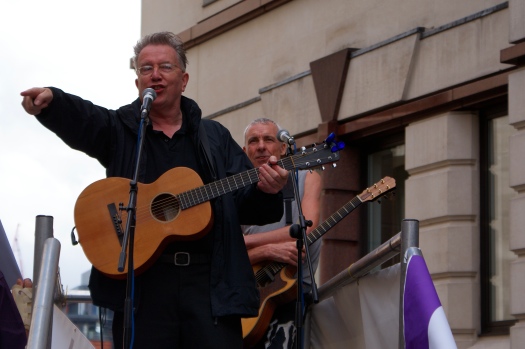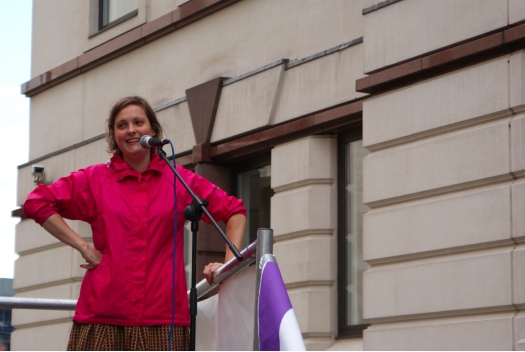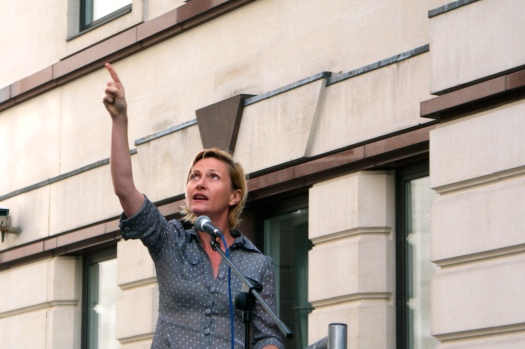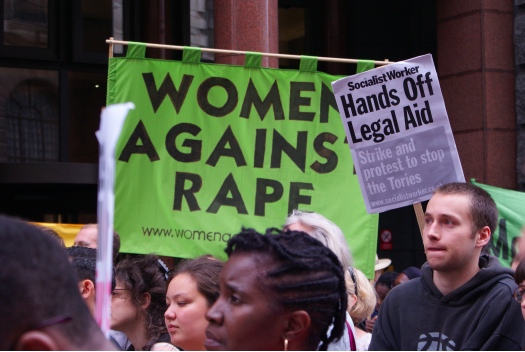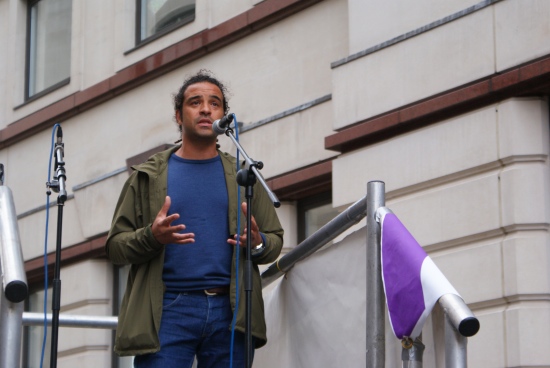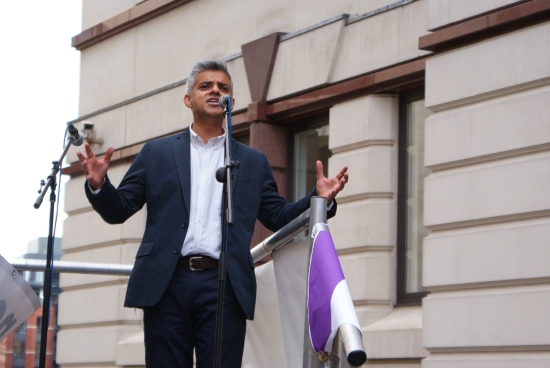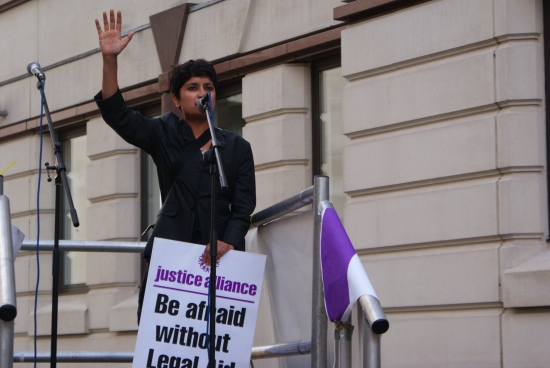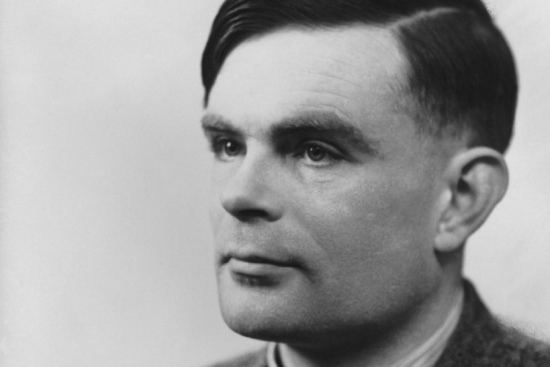Could David Miranda be a “terrorist”?
There’s understandably been a great deal of reaction to the nine-hour detention at Heathrow airport of David Miranda, who was travelling as part of his work with Guardian journalists covering Edward Snowden’s disclosures, and whose laptop and memory stick were seized as a result of his detention and questioning under paragraphs 2 and 6 of Schedule 7 to the Terrorism Act 2000.
Paragraph 2(1) of Schedule 7 says that:
An examining officer may question a person to whom this paragraph applies for the purpose of determining whether he appears to be a person falling within section 40(1)(b)
and section 40(1) provides that a
“terrorist” means a person who …
(b) is or has been concerned in the commission, preparation or instigation of acts of terrorism.
So there’s no doubt: the purpose of Schedule 7 is clear. I fully agree with David Allen Green that the questioning and detention of David Miranda was unlawful unless carried out for the purpose of determining whether he appeared to be concerned in “terrorism” within the meaning of the Act.
To be clear, this question of the legal purpose of the questioning is separate from the question whether he was suspected of terrorism or not. Paragraph 2(4) makes clear that
An examining officer may exercise his powers under this paragraph whether or not he has grounds for suspecting that a person falls within section 40(1)(b).
So a police officer can question and detain someone under Schedule 7 even without any reason to suspect him or her of being a terrorist. Nonetheless, the questioning must be for the purpose of determining whether or not he appears to be one.
If the questioning here was in truth for an ulterior purpose – say, to get hold of and investigate for other purposes documents Miranda was carrying, perhaps circumventing the need either to arrest him in order to do so, or else to apply to a judge to search the Guardian’s offices for “journalistic material” under the Police and Criminal Evidence Act 1984 – then it was unlawful.
I’m by no means a “civil liberties” campaigner. I’ve not been alarmed by the Guardian’s revelations about GCHQ: I think it’s important that it has legal power to find and monitor terror suspects, and have yet to read anything that makes me think it’s acted unlawfully or without proper Parliamentary scrutiny. I think the police may well need powers like Schedule 7. But I also think it’s right that the detention of a journalist in these circumstances causes concern, and I’m pleased the independent reviewer of terrorism legislation, David Anderson QC, has asked to be briefed about it.
The Metropolitan Police have defended their actions as “legally and procedurally sound”, and a Home Office spokesman has apparently said
If the police believe that an individual is in possession of highly sensitive stolen information that would help terrorism, then they should act and the law provides them with a framework to do that.
I’ll be interested to see if they can successfully defend the detention in court, assuming Miranda’s legal challenge goes ahead. I wouldn’t much fancy defending this judicial review myself, I have to say. There must be quite a few anxious discussions going on tonight about how to respond to today’s letter from Bindmans solicitors between government lawyers at the Home Office, Treasury Solicitor’s Department and the Attorney General’s Office, probably involving Treasury Counsel James Eadie QC or Jonathan Swift QC.
A particularly important and interesting question is (regardless of whether they had grounds to suspect him, which as I’ve said is separate, and legally irrelevant) whether the police or intelligence services could seriously wonder whether David Miranda might actually be, or rather appear to be, concerned in “terrorism”. By this I’m not asking rhetorically whether they might think he planned to make explosives or intentionally help Al Qaeda or the Real IRA. What I mean is, might he have appeared to be a “terrorist” within the meaning of the Terrorism Act 2000, because of his connection to the Guardian?
This isn’t as silly a question as it first appears. Indeed, the former MP Louise Mensch has suggested as much in a tweet to David Allen Green (@JackofKent):
[tweet_embed id=369796081003278337]
The definition of “terrorism” is in Section 1:
(1) In this Act “terrorism” means the use or threat of action where—
(a) the action falls within subsection (2),
(b) the use or threat is designed to influence the government or an international governmental organisation or to intimidate the public or a section of the public, and
(c) the use or threat is made for the purpose of advancing a political, religious, racial or ideological cause.(2) Action falls within this subsection if it—
(a) involves serious violence against a person,
(b) involves serious damage to property,
(c) endangers a person’s life, other than that of the person committing the action,
(d) creates a serious risk to the health or safety of the public or a section of the public, or
(e) is designed seriously to interfere with or seriously to disrupt an electronic system.
“Terrorism”, then, is anything that fulfils one of the conditions in section 1(2), and both conditions 1(1)(b) and 1(1)(c).
The police might well think publishing the content of sensitive intelligence-related documents could “create a serious risk to the safety of the public”, and so satisfy the section 1(2)(d) condition. Edward Snowden’s revelations, whatever you think of them, certainly raise political issues, and arguably the Guardian’s reporting of them has been in a sense “campaigning” as well as investigative. So perhaps the Guardian’s use of the documents could be said to advance a political cause – the “civil liberties agenda” if you like, or the cause of wanting closer scrutiny of the intelligence services. That might satisfy the section 1(1)(c) condition.
It seems to me more difficult to see any use of the documents by the Guardian as “designed to influence the government” as required by section 1(1)(b); the Guardian’s actual purpose is to inform the public and sell newspapers. Calling for a debate isn’t the same thing as trying to blackmail the government, or even to lobby it. So it’s a stretch to argue that the Guardian wants to influence the government. But a paranoid police or intelligence officer might think so. And after all, in a democracy publicly raising serious political questions in some ways overlaps with trying to influence the government, at least between elections.
If that’s right, then it’s possible to argue that David Miranda may, by acting as a go-between carrying documents to journalists (if that’s what he did), have been involved in the preparation of an act of “terrorism”; and therefore to argue that he may indeed have appeared to be concerned in “terrorism” within the meaning of the legislation, although certainly not a terrorist giving that word its plain meaning.
The wide meaning of terrorism under the 2000 is not a newly-discovered issue: David Anderson QC has warned about it in each of his annual reports on the operation of terrorism legislation. In his report on the use of the legislation in 2010, for instance, he wrote at paragraph 3.6:
A broad definition of terrorism may serve also as a temptation to use other powers (including port and border controls) for purposes other than that for which they are intended.
The reference to port and border controls being, of course, a reference to Schedule 7.
Amendments to Schedule 7 are already being debated by Parliament in the Anti-social Behaviour, Crime and Policing Bill. The proposed changes involve, for instance, reducing the maximum period of questioning, from the nine hours endured by David Miranda down to six hours. But the opportunity is there for Parliament to change Schedule 7 however it wants.
I don’t oppose the existence of the Schedule 7 powers: I think they can be used reasonably to combat genuine terrorism. I don’t have a problem, either, with the idea that police and intelligence officers should have powers to search for and seize documents whose publication could breach the Official Secrets Act 1989, for instance. Indeed if their current powers under official secrets legislation are inadequate, I wouldn’t be opposed to their being given new ones.
But where unusual powers are conferred on the police and intelligence services, it should be reasonably clear how those powers will be used. The law should speak plainly. Technically, an Act of Parliament can define any term however Parliament wants it to; once legislation has set out in detail a range of conduct it wants to do something about, it can use any word as a convenient label to encompass and describe that conduct. But there are dangers in distorting the meaning of words, and a wise Parliamentary counsel and wise ministers will not bend statutory language too far.
So whether or not the questioning and detention of David Miranda is held to have been unlawful, Parliament should now look again at the definition of terrorism in the 2000 Act, at least as it applies in the context of Schedule 7 and to the work of journalists. I worry about how long public confidence can be maintained in the existence of Schedule 7 if it’s used to fight things labelled “terrorism” that are nothing like what you and I mean by the word.

